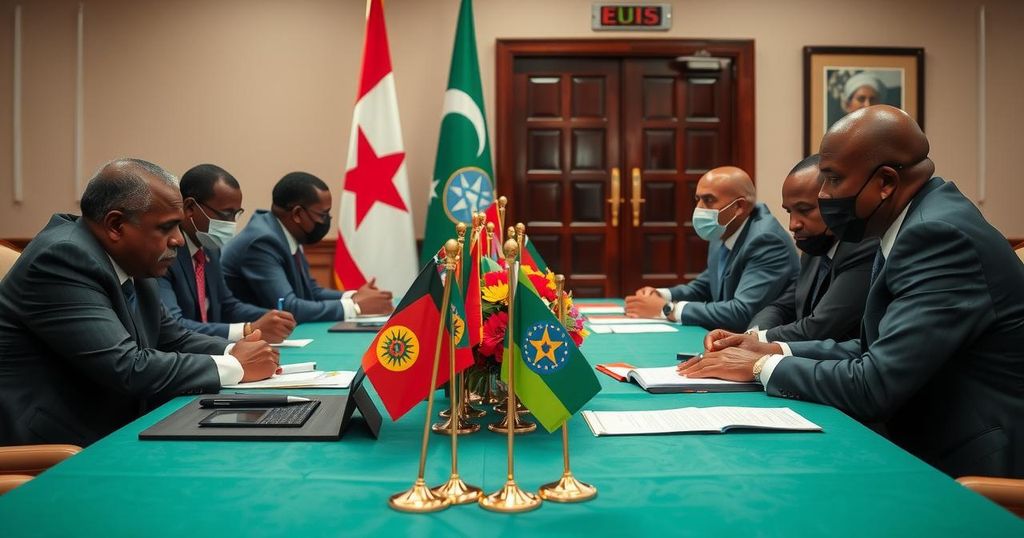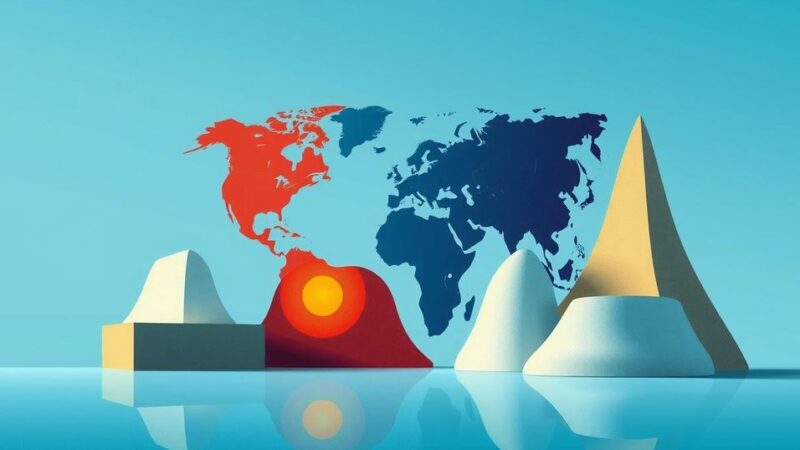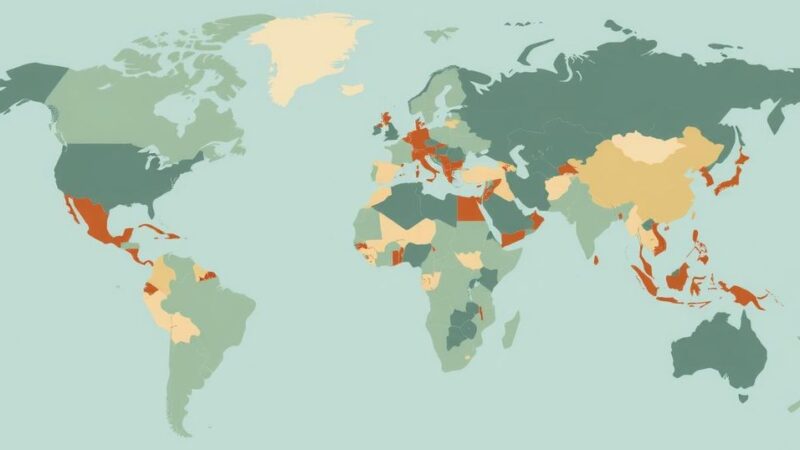Somalia’s President Hassan Sheikh Mohamud visited Ethiopia as part of efforts to strengthen a recent peace deal aimed at reducing tensions in the Horn of Africa. The visit, initiated at the request of Ethiopian Prime Minister Abiy Ahmed, follows a contentious agreement between Ethiopia and Somaliland. While the peace agreement mediated by Turkiye offers hope, significant questions remain unresolved regarding territorial and maritime issues, as other regional powers have formed alliances opposing Ethiopia’s ambitions.
MOGADISHU: In a significant diplomatic endeavor, the President of Somalia, Hassan Sheikh Mohamud, visited Ethiopia on Saturday, a move aimed at solidifying a recent peace agreement that seeks to mitigate escalating tensions between the two nations in the tumultuous Horn of Africa region. Ethiopia, a landlocked nation, has historically aspired for access to the sea, which has exacerbated existing grievances with its neighbor, Somalia.
The culmination of strain reached a peak when Somalia expressed outrage over Ethiopia’s prior agreement with Somaliland, a breakaway region, to recognize its independence in exchange for port access and military presence on the Red Sea. However, a peace accord mediated by Turkiye and signed last month by President Mohamud and Ethiopian Prime Minister Abiy Ahmed has provided a framework for dialogue and cooperation.
The Somali Presidential office indicated that this visit to the Ethiopian capital, Addis Ababa, was at Prime Minister Abiy’s invitation and declared, “This visit builds on the recent agreement reached in Ankara. This renewed cooperation underscores a new era of collaboration between Somalia and Ethiopia.”
Despite the positive strides made, substantial questions linger regarding the complexities of the recent peace deal. While Turkish President Recep Tayyip Erdogan suggested that Ethiopia would eventually obtain some form of sea access, the specifics of this arrangement remain ambiguous. Moreover, the status of Ethiopia’s agreement with Somaliland is also unclear.
Amid these developments, ongoing tensions surfaced in Cairo where Somalia’s Foreign Minister, Ahmed Moalim Fiqi, conferred with his counterparts from Egypt and Eritrea. The three nations, having recently formed a coalition against Ethiopia’s maritime aspirations, made implicit references to their regional rival, stressing the principle that “The Red Sea and its security is subject only to the will of the countries on its coast, and it is absolutely unacceptable for any country not bordering the Red Sea to have a presence, whether military, naval or otherwise,” as articulated by Egypt’s Foreign Minister, Badr Abdelatty.
The alliance formed by Egypt, Eritrea, and Somalia in October during a summit in Asmara signifies growing regional solidarity, which has fostered closer military cooperation, exemplified by Egyptian troops participating in the African Union Support and Stabilization Mission in Somalia (AUSSOM) this month.
The Horn of Africa has long been a region marked by political instability, ethnic tensions, and territorial disputes. The relationship between Somalia and Ethiopia has been particularly fraught, influenced by Ethiopia’s ambitions for maritime access through Somalia’s territory and its historical grievances with the Somali state. The recent peace deal, facilitated by Turkiye, represents an effort to address these longstanding issues amidst broader regional dynamics involving alliances and conflicting interests. The emergence of a coalition against Ethiopia’s pursuits has further complicated the geopolitical landscape in the region, showcasing the intricate interplay of diplomacy and military collaboration.
The visit of President Hassan Sheikh Mohamud to Ethiopia signifies a pivotal moment in Somali-Ethiopian relations, as both nations strive for peaceful coexistence and collaboration following recent agreements. Nevertheless, unresolved issues regarding maritime access for Ethiopia and its dealings with Somaliland, alongside regional tensions, highlight the fragility of the situation. The diplomatic efforts conveyed through this visit illustrate a cautious optimism in navigating the complexities of the Horn of Africa’s geopolitical climate, while ongoing alliances hint at broader implications for the future.
Original Source: www.arabnews.com






